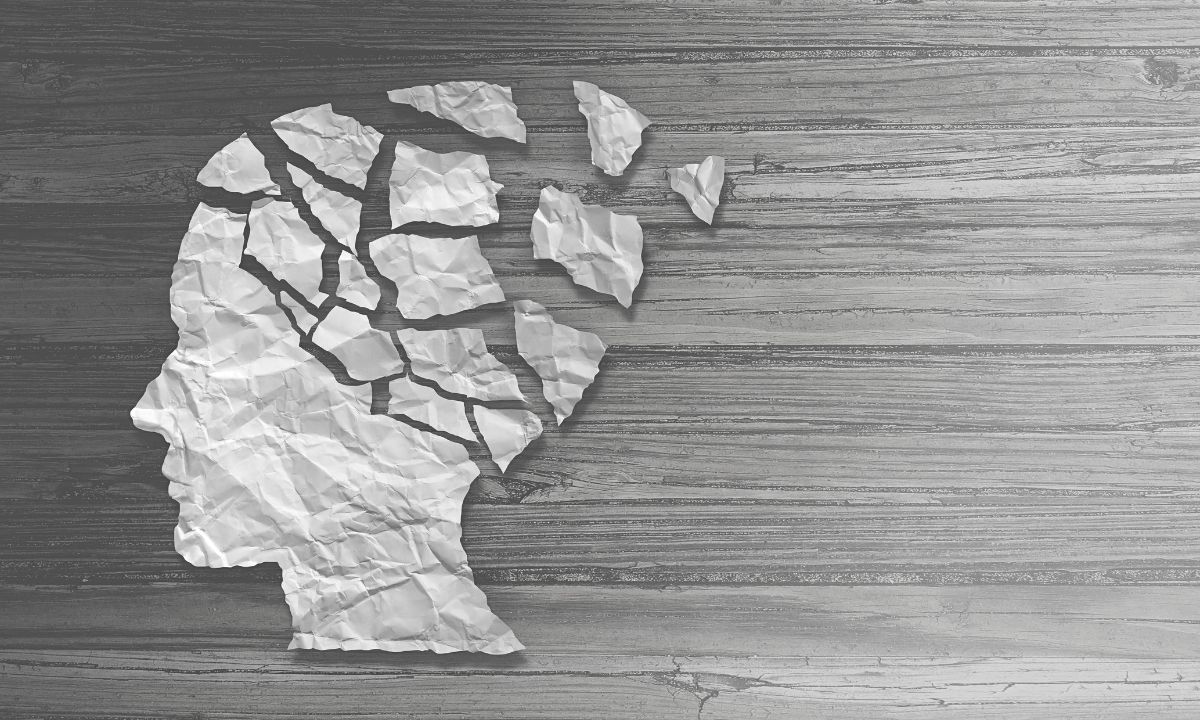If you’ve experienced a blow to the head during an accident, there’s one type of injury that deserves special attention but isn’t always easy to spot: a brain injury. These injuries can affect not only your physical health but also your emotions, thinking, and the way you interact with the world around you. Recognizing the symptoms early is one of the most important steps toward recovery.
Every brain injury is unique, and the symptoms can vary widely depending on the severity of the impact and what part of the brain is affected. Some signs are obvious right away, but others may take hours, days, or even weeks to appear.
Whether you’ve been in a car crash, a slip-and-fall accident, or have suffered a different type of traumatic event, paying attention to your body and knowing what to watch for is critical.
Contact a Richardson car accident lawyer today at (888) 960-8363 or through our online form for a free consultation.
What Are Brain Injuries, and Why Are They Dangerous?
A brain injury occurs when an external force, like a sudden blow, jolt, or even sharp impact, disrupts the brain’s normal function. These injuries fall into two main categories:
- Traumatic Brain Injury (TBI): This includes injuries like concussions, contusions (bruising of brain tissue), and more severe trauma such as hemorrhaging or skull fractures.
- Acquired Brain Injury (ABI): This involves injuries caused by non-traumatic events, such as lack of oxygen to the brain or medical issues like strokes.
Many accidents result in TBIs, and what makes them so tricky is that the symptoms are not always obvious. Injuries to the brain aren’t like a visible cut or bruise you can clearly identify. Because the brain controls almost every function in your body, even a mild injury can cause ripple effects that impact your ability to think, communicate, and even feel like yourself.
Brain injuries can range from mild (like a concussion) to severe, which may result in long-term disabilities or even life-threatening conditions. The earlier these injuries are recognized, the better the chances for effective treatment and recovery.
Physical Symptoms You Shouldn’t Ignore
One of the difficult aspects of brain injuries is that they often feel invisible. However, your body may be sending you warning signs. Below are some of the common physical symptoms that a brain injury might cause after an accident:
- Headaches: Persistent headaches that don’t go away or worsen over time are common indicators of a potential brain injury. Occasional headaches are normal, but if you notice they’re frequent or unusually severe, don’t ignore them.
- Nausea and Vomiting: Feeling nauseous or vomiting without another clear explanation can be a sign of brain trauma, especially if it occurs soon after an accident.
- Fatigue or Drowsiness: Many people with TBIs report extreme exhaustion or a sense of being “zapped” of energy. It’s more than feeling tired; this type of fatigue often doesn’t improve even with rest.
- Problems with Vision: Blurry or double vision, difficulty focusing, or sensitivity to light are red flags. These changes could mean that a part of the brain responsible for processing visual information has been impacted.
- Loss of Balance and Coordination: Brain injuries can affect your motor skills, making it harder to keep your balance or coordinate your movements. You might feel dizzy when getting up or notice a general sense of unsteadiness.
- Seizures: Seizures don’t happen with every brain injury, but they’re definitely a sign of serious harm. If you or someone you know experiences a seizure after an accident, seek medical attention immediately.
- Speech Changes: Slurred, slow, or difficult speech can indicate swelling or damage to the areas of the brain that control language and motor functions. Even minor changes to how you speak are worth investigating.
Remember, these symptoms aren’t always as dramatic as they sound. For example, a light headache that doesn’t go away might seem like no big deal, but it could be a signal of something deeper.
Emotional and Cognitive Signs of Brain Trauma
Physical symptoms are only part of the picture. Brain injuries can also affect your emotions, thinking, and personality in ways that are hard to pin down but just as disruptive to your everyday life. Some common emotional and cognitive symptoms include:
- Memory Problems: Difficulty remembering recent events or forgetting basic details, such as where you left your keys, is a common sign. Sometimes people describe feeling like they’re in a fog, unable to think as clearly as they used to.
- Difficulty Concentrating: Have you noticed that it’s tough to focus on a single task, or that your mind seems to wander? This could signal an issue with your brain’s ability to process information.
- Mood Swings and Irritability: Emotional changes might sneak up on you. You could be unusually quick to anger, switch between emotions rapidly, or feel overwhelmed by situations you used to handle with ease.
- Depression or Anxiety: While it’s normal to feel stressed after an accident, significant or ongoing feelings of sadness, hopelessness, or panic may indicate more than just a reaction to the accident. Brain injuries can directly influence your emotional well-being.
- Sleep Issues: You might find it hard to fall asleep, or you could end up sleeping far more than usual and still feel tired. Irregular sleep patterns or difficulty staying awake during the day could point to a deeper problem.
- Trouble Processing or Expressing Thoughts: Some people with TBIs notice that they struggle more to organize their thoughts, respond quickly in conversations, or remember words they want to say.
- Personality Changes: Friends or family might notice differences in your personality. For example, you might become less patient, more impulsive, or seem like a different person altogether. This can be one of the hardest symptoms for both victims and loved ones to manage.
These cognitive and emotional symptoms often overlap with the physical issues, making it even more essential to seek guidance from a professional who can identify the root causes.
Why Recognizing Symptoms Matters
It’s common to dismiss symptoms of a brain injury at first, especially if you didn’t lose consciousness during the accident. You might think, “It’s just stress,” or, “I just need a few days to recover.” Unfortunately, delaying treatment can lead to complications or make recovery much harder.
Some mild traumatic brain injuries may resolve relatively quickly, but others can evolve into long-term conditions like post-concussion syndrome or more severe neurological problems. Likewise, what starts as a small brain bleed or swelling can worsen without immediate medical attention.
For many brain injury survivors, one of the most frustrating aspects of recovery is the uncertainty. Injuries to the brain don’t follow a predictable path, the way that healing a broken bone does. What works for one person may not work for another, and symptoms can linger far longer than expected.
By recognizing the signs early and reaching out for help, you gain the power to address the injury before it worsens. Medical professionals can use diagnostic tools like MRIs or CT scans to pinpoint the problem, helping you understand your condition and create a plan for recovery tailored to your unique needs.
What to Do After a Suspected Brain Injury
If you think you’ve suffered a brain injury after an accident, taking the following steps can help protect your health and your future:
- Get Medical Attention Immediately
Whether you go to the emergency room or visit your primary care doctor, don’t delay. Early diagnosis is key. Be sure to describe all your symptoms clearly, even if they seem unrelated.
- Follow Your Treatment Plan
This might include rest, medication, physical therapy, counseling, or neurological rehab. Give your brain the time it needs to heal — pushing yourself too hard too soon can make things worse.
- Track Your Symptoms
Keep a daily journal of how you feel physically, mentally, and emotionally. This not only helps you and your doctor monitor your progress, but can also serve as valuable evidence if you need to file a legal claim.
- Avoid High-Risk Activities
Until you’ve fully recovered, try to avoid activities that could put you at risk of another head injury — like contact sports, climbing ladders, or driving if you’re dizzy or disoriented.
- Speak with a Legal Professional
Brain injury cases are complicated, especially when they involve insurance companies, negligent drivers, or unsafe property conditions. Consulting with a personal injury attorney can help you understand your rights and options for compensation.
Why Should I Consult a Lawyer after a Brain Injury?
After an accident, you’re already dealing with enough—from medical treatments to emotional challenges and learning how to adjust to your new reality. If a brain injury is involved, the stakes are even higher. The truth is, trying to handle the legal details on your own can feel overwhelming and may lead to stressful outcomes. That’s where consulting a lawyer can make all the difference.
Brain injury cases often involve intricate details, such as gathering medical records, calculating future medical expenses, and proving how the injury has impacted your life. An experienced lawyer understands these complexities and can guide you through every step, ensuring that no detail is overlooked.
Insurance companies, though they may seem supportive, often aim to settle claims quickly for less than what you deserve. A lawyer becomes your advocate in negotiations, fighting for fair compensation for your medical bills, lost income, pain and suffering, and other damages you might not even know you can claim.
Most importantly, having a legal professional on your side allows you to focus on your recovery without being consumed by legal stress. They’ll handle the paperwork, phone calls, and hurdles that come with seeking justice, fighting to protect your rights and secure the financial support you need.
Because no one should have to face this process alone, consulting a lawyer gives you the peace of mind and confidence to rebuild your life after an accident.
How Compensation Can Help
Living with a brain injury often comes with massive financial, emotional, and physical burdens. You may be dealing with high medical bills, lost income from being unable to work, ongoing therapy, and a dramatically different day-to-day life.
That’s why personal injury law allows accident victims to pursue compensation for a wide range of damages, including:
- Emergency room visits and hospital stays
- Imaging tests (MRIs, CT scans, etc.)
- Physical and cognitive therapy
- Lost wages or reduced earning capacity
- Pain and suffering
- Loss of enjoyment of life
- Mental anguish
- Future medical care
Every case is different. But if your injury was caused by someone else’s negligence — whether it was a reckless driver, careless property owner, or defective product — you have the right to pursue justice.
How AMS Law Group Can Help with Your Brain Injury Case
If you or someone you love is showing signs of a brain injury after an accident, time is of the essence. Don’t wait for the symptoms to get worse or for the bills to pile up. Get the medical help you need — and the legal support you deserve.
Let AMS Law Group be your ally, your advocate, and your voice. When you partner with us, you gain more than just a lawyer. You gain an advocate who will stand by your side, ensuring your rights are protected every step of the way. From gathering evidence and negotiating with insurance companies to representing you in court, we handle the details of your case so you don’t have to.
Our commitment to client care means that you’ll never feel like just another case file. We offer direct access to your attorney, personalized guidance tailored to your unique situation, and a “no win, no fee” guarantee, so you can pursue your case with confidence. Through years of dedication and hard work, our legal team has secured millions of dollars in settlements for our clients, and we want to do the same for you.
If you’re ready to explore your legal options, we offer free consultations with no obligation. Contact us today at (888) 960-8363 or through our online form for a free consultation.
Your recovery matters. Your story matters. And at AMS Law Group, we’re here to fight for the resolution you deserve.


